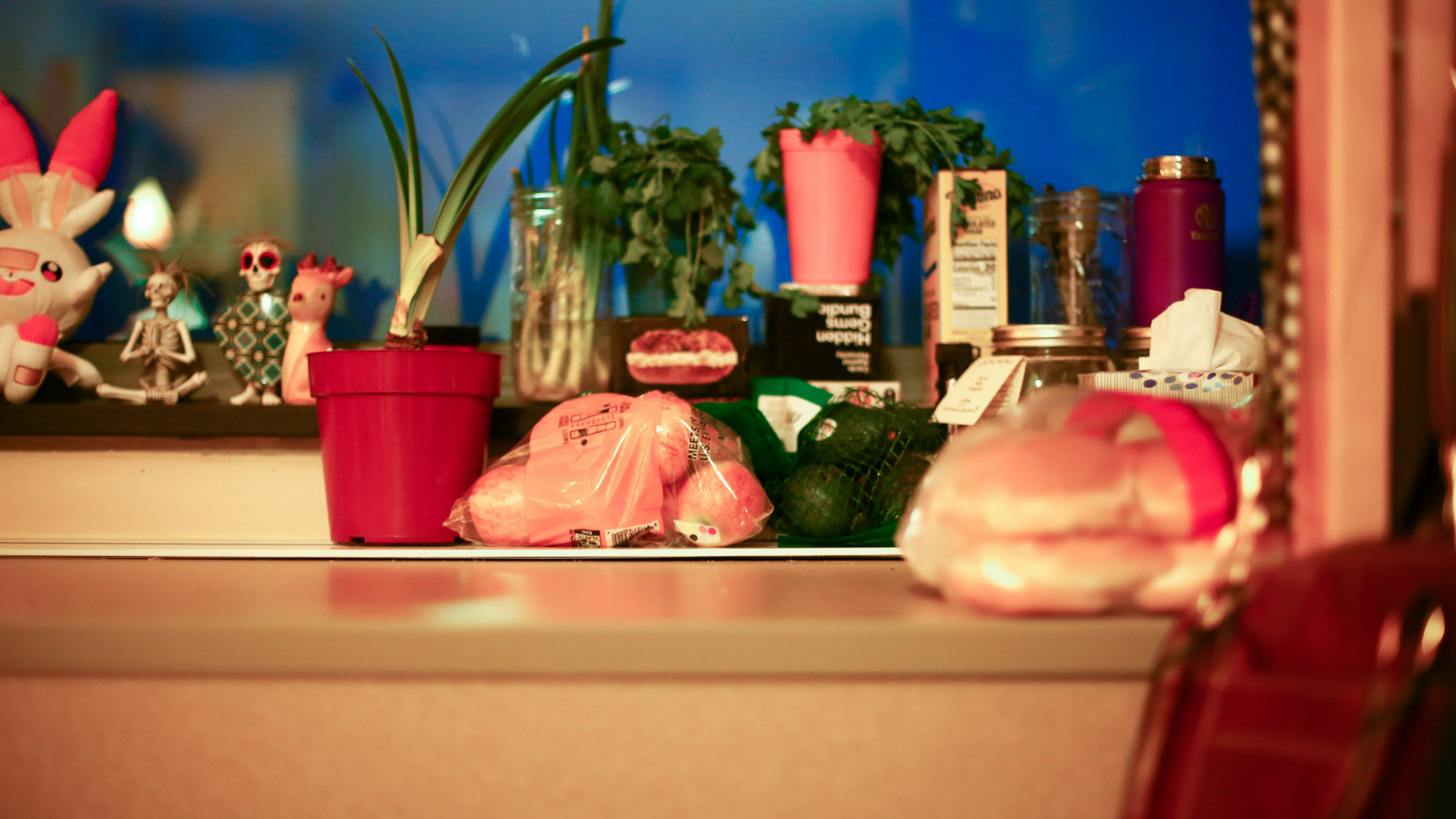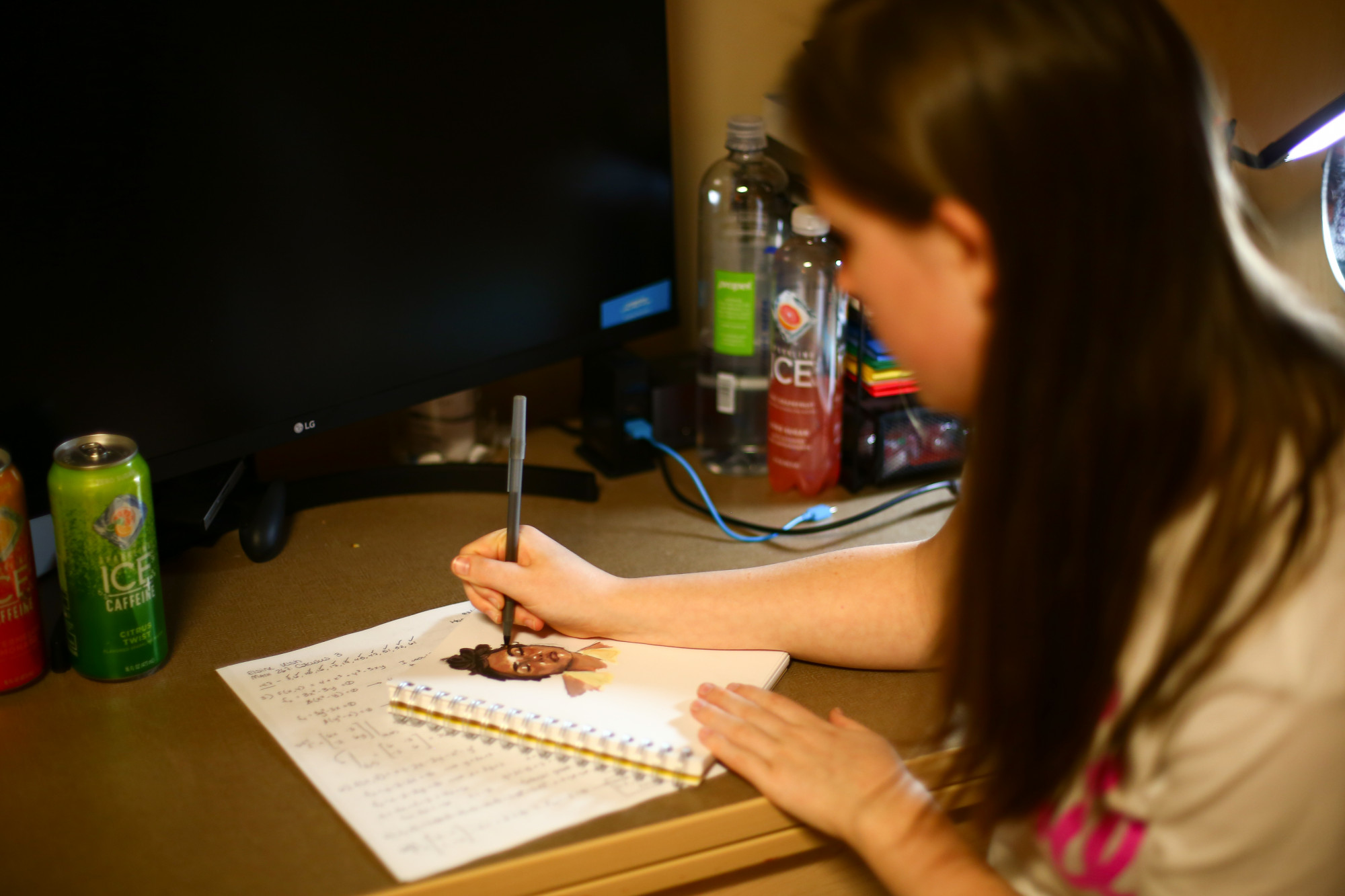Elaine Ulsh is a first-year computer science and physics major and writes "The Occasional Observer" for the Daily News. Her views do not necessarily reflect those of the newspaper.
I love hobbies. Something about them just makes me so happy.
I think it may have something to do with the sense of nostalgia I feel every time I pick up a paintbrush or start a puzzle. My family fed into my creativity, so I would often receive art supplies as presents for Christmas or my birthday.
I have a clear and distinct memory of Christmas in fourth grade after I received my first set of independent painting supplies. It was thrilling. I had so much fun finding the hobby I then continued for many years.
As of recently, I never seem to have time for hobbies like that anymore - it sucks.
As a child, I used to have tons. Of course, I did not have as many responsibilities or access to the internet, but that doesn't make me miss hobbies any less. I used to read books as if I would straight up fall over and die if I didn't. I drew like crazy to the point that many around me thought I would end up going to art school.
I enjoyed these hobbies so much that they gave me a sense of security in my own mind, a feeling that has seemed to slip away as I grew up.
There are other "hobbies" I have, so to speak. However, these hobbies are more like tasks I have to do to serve a greater purpose, like cooking for instance. I very much enjoy cooking and do it almost every single day.
But at the same time, I have to cook in order to eat, unless I eat at a dining hall.
Theoretically, I could regard writing these newspaper articles a hobby, considering I am a non-journalism major.
However, I find myself missing my old hobbies. Maybe it's the nostalgia I crave or simply the feeling of not quite wanting to be an adult yet. Growing up can be scary - all that responsibility placed on you all at once to keep yourself fed and housed.
All my current hobbies feel so grown-up. So, every once in a while, I will paint a full-blown portrait or read five books in a week's time.
But those kinds of things take hours; it takes time I just do not seem to have anymore, time I have not had in years.
I make excuse after excuse, compromising any opportunity to indulge in self-care: "I have to do this," or "I have to do that." I should not have to give up my hobbies for the sake of doing nothing in a moment of stress.
Though it feels like I'm relaxing by doing nothing, I would feel better if I was doing a hobby instead.
But are the excuses we make that compromise our downtime a justification to a means?

According to the University of Western Alabama, hobbies impact personal growth in various ways including boosting creativity, relieving stress and stretching skills and knowledge, among other things.
We decrease our chances of personal growth when we give up our hobbies.
As a college student, I have enough on my plate trying to juggle my classes along with the mounds of homework I deal with on a daily basis, a social life and obtaining a part-time job. It seems almost impossible to do something not related to school, especially when midterms and finals come around.
Free time? Who's she? I don't know her.
Not having free time, while it might have been an unconscious choice I made in an effort to keep myself perpetually busy, has taken its toll. I am always stressed and busy, yet I always seem to continuously add more onto my plate as the year progresses.
Eventually, my brain has had enough and quits at its own dismay every once in a while. Yes, I mean the awful witch called burnout.
Hobbies have shown several benefits in enhancing the overall well-being of a person as well as social connections, according to Utah State University, subsequently showing decreases in depression and anxiety.
In a 2019 study by the University of Macedonia, burnout can be caused by mental health disorders, namely anxiety and depression.
This means my anxiousness in not getting things done or having enough time in a day could be a contributing factor to burnt out. It also means hobbies may be able to help.
Knowing this information makes my want to pick my hobbies back up even stronger. I would urge other people, especially my peers, to do the same and keep engaging with them.
According to the American Psychological Association, nearly 60 percent of college students have some sort of mental health issue - a significant reason reincorporating hobbies into daily routines is so important.
We're at a point in our lives where everything seems to pile up: school, work, sleep and socializing. Sometimes it can all feel as though it is too much.

It is during these times when we need to take care of our minds. With us allowing our hobbies to carve out time in our lives to indulge in self-care roles, we are setting ourselves up for success.
Success can be achieved only when we are not constantly getting burnt out or feeling at war in our own minds. In a sense, hobbies are the toolkits we need to break out of our heads and have healthy mental states.
People may make excuses for not having them because of financial means, but hobbies don't have to cost much for you to enjoy them. Hobbies can be inexpensive with money and time.
According to the blog Positively Frugal, cheap hobbies can include things like playing board games, putting together puzzles, reading books and gardening.
I personally would love to take up some board games as hobbies. A favorite of mine, Bananagrams, can take less than 10 minutes and improve your vocabulary due to the nature of the game.
Aside from that, reading does not have to be a time intensive activity. If you were to read for pleasure just five minutes a day, you would be reading more than the majority of Americans, according to the Pew Research Center.
Many of the aforementioned hobbies can cost less than $10, especially if they are purchased from a thrift store or borrowed from a library. Once equipped with the necessary tools, it can be fairly simple to get into the habit of self-care.
A study by the British Journal of General Practice states it can sometimes take around 66 days for a habit to fully form.
If we were to just set aside seven minutes a day or even an hour each week, we could have our hobbies reincorporated in around two months.
While this may seem like a big commitment, it is only as little as 7.7 hours for the whole of the 66 days.
Therefore, I implore everyone to make the change to include hobbies into your daily lives. It may make an impact you were never expecting.
While I personally have not reimplemented all of my habits fully, I have had the chance to pick a few back up. I have noticed that I don't spend all day completely stressed out like I usually do.
Though the days may now seem slightly more packed, I have been doing more things that I readily enjoy. And I think I'm going to keep this going because it's making me happier to do what I want to be doing, rather than just what I feel I need to do.
Contact Elaine Ulsh with comments at elaine.ulsh@bsu.edu.
